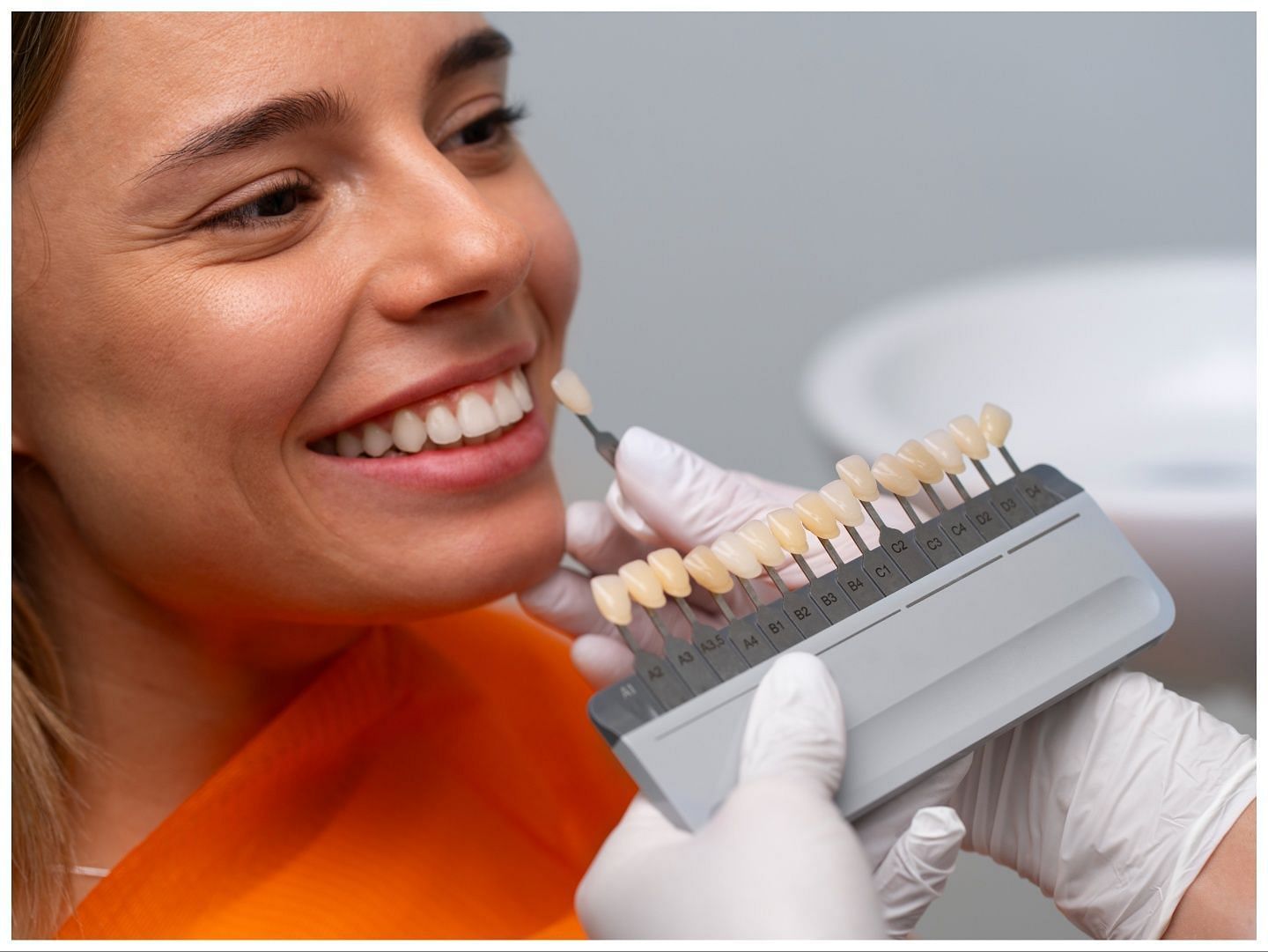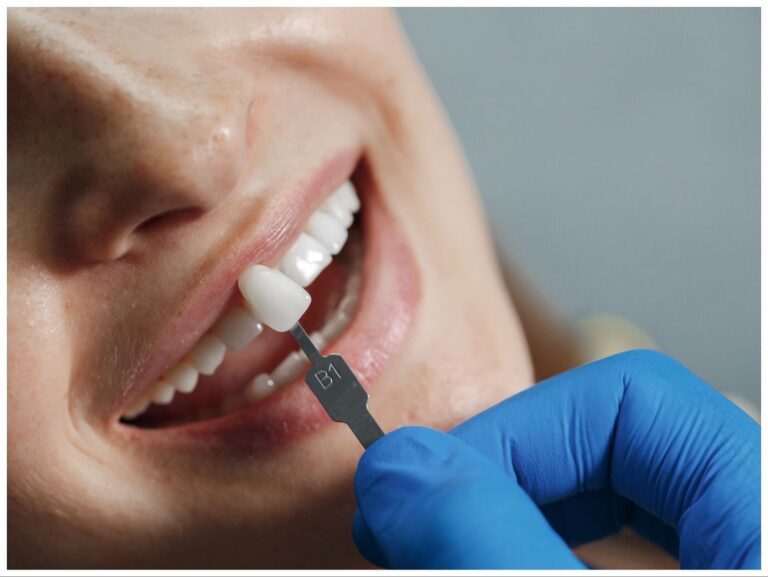Dental veneers are a great way to improve your smile, especially if your teeth are broken, misshapen, very discolored, or won’t and can’t be whitened. Dental veneers have some important advantages. First, you only need two appointments to fix them. Second, it’s easy to change their color to match your teeth. Finally, the porcelain they use looks like real teeth and doesn’t stain easily.
The main disadvantage of veneers is that the teeth may need reshaping. This makes it difficult to go back to how it was before. But veneers will give you the smile everyone wants. Until recently, veneers required the removal of a small amount of enamel, a practice that some people were uncomfortable with.
However, in recent years “prepless” veneers have emerged, requiring little or no grinding of the teeth. When placed correctly, these veneers can significantly improve the natural appearance of one’s teeth and quickly correct cosmetic issues such as discoloration, chipping, or fractures.
**Disclaimer- This article is for informational purposes only. For any dental or surgical procedures consult your primary health care professional
Should you get tooth veneers?
However, many factors determine the suitability of veneers for an individual. Critical among these is a stable bite, which can make a decisive difference in the success of a veneer placement. The underlying health of your back teeth greatly affects the health of your front teeth, and a thorough evaluation of the bite should precede any decision to get veneers.
Additionally, veneers are highly customizable. They can be adjusted according to facial symmetry and personal style, with designs ranging from feminine to aggressive and defined to natural. It is important for anyone considering veneers to choose a design that resonates with their personality.
Advantages of tooth veneers

1) Realistic appearance
Porcelain veneers are becoming more and more popular. This is mainly because they look very similar to natural teeth. The outer layer of your tooth (enamel) is very similar to porcelain. And the way the light hits them? Almost identical. So that’s why porcelain veneers look so real and natural.
2) Stain resistance
Porcelain is ceramic, and as such is quite “glass-like”. The veneer surface is very smooth and cannot be damaged easily. This means that porcelain veneers do not acquire permanent stains easily. No need to worry about coffee, wine or cigarette stains!
3) Durability
Porcelain veneers last relatively up to 15 years compared to plastic (composite) veneers which last up to seven years.
4) Multiple colors to choose from
For tooth veneers you can choose the color you want. And if your teeth are a bit dark, you can choose a whiter shade. So your smile will look brighter!
5) Ease of formatting
Porcelain veneers do not require extensive pre-procedure shaping compared to crowns. Extremely thin veneers often do not need tooth shaping.
Improved appearance and restoration of self-confidence: porcelain veneers can correct many dental problems. We’re talking about things like crooked teeth, discolored teeth, or small gaps between teeth. By correcting these problems, veneers can truly enhance a person’s smile. And a better smile? Well, this can help boost your confidence to a great extent.
Disadvantages of dental veneers



1) Artificiality
Although it looks realistic, porcelain is artificial teeth, which can be a problem for people who want a more natural solution to their dental problem.
2) High cost:
Veneers, especially porcelain, can take a toll on your wallet. Each costs between $1,000 and $1,500. When you start multiplying that by the number of teeth you are correcting, the total adds up quickly.
Also, you have to be kind to them. Sure, porcelain veneers are pretty strong, but they’re not superhero tough. Things like grinding your teeth or biting hard foods can chip or break them. If that happens, you’re looking at another round of bills for repair or replacement.
3) Eternal
Once veneers are in place, they’re there to stay—no withdrawal. And because the process requires some enamel removal, you may find yourself more open to experiencing hot and cold beverages on a whole new level.
4) You may not be a candidate
Also, not everyone can get veneers. If your teeth are not healthy, such as if you have tooth decay or gum problems. Or if they are weak from things like fractures or large fillings, you may not be a good fit for veneers. Also, if you don’t have much enamel left or grind your teeth, think twice. Dental veneers may not work for you under these conditions.
Dental veneers are a quick smile upgrade, ideal for cracked or discolored teeth. Two visits and you are ready, with the color and style of your choice. But beware, it is a lifetime commitment and sometimes requires shaping of the teeth. New “prepless” veneers mean less rubbing. But remember, veneers aren’t for everyone – stable and healthy teeth are key.
They are realistic, long-lasting, and stain-resistant, but they are still artificial, can be expensive, and there is no going back once activated. If you’re cool with it, veneers can give your smile a major boost. So, weigh the pros and cons before taking the plunge.


